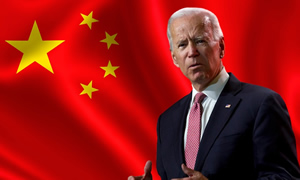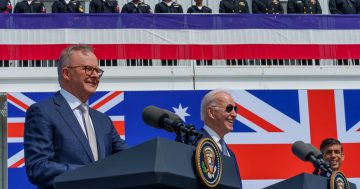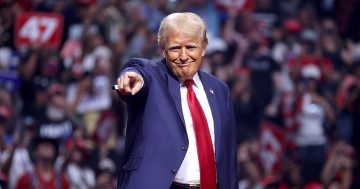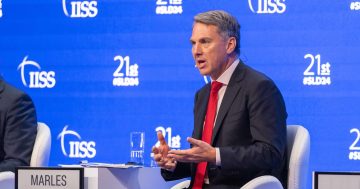Eric Feinberg* says that while there have been sharp differences between the Biden Administration and its predecessor on most issues, China policy is likely to show startling similarities.
 Media coverage of United States President, Joe Biden’s first months in office has concentrated on the many areas where he has broken sharply with his predecessor.
Media coverage of United States President, Joe Biden’s first months in office has concentrated on the many areas where he has broken sharply with his predecessor.
However, one area that looks increasingly like it will exhibit greater continuity than change is US policy toward China.
In fact, while chasms remain between Democratic and Republican perspectives on many foreign policy issues, there seems to be uncommon convergence on the challenge posed by China, at least substantively if not stylistically.
The hardened approach among Democratic policymakers has been driven by disillusionment with China from the Obama years.
In a recent BBC interview, Evan Medeiros, who served as President Barack Obama’s China Director on the National Security Council, conceded that he and other Obama-era China experts had misjudged how adversarial Chinese leader, Xi Jinping would be.
“When I look back at our China policy, I wish that we had recognised quicker how different Xi Jinping was from Hu Jintao and recognised how he was going to take China politically, economically, and strategically in a different direction,” Medeiros said.
As President Biden continues looking to former Obama officials to fill national security roles in his administration, the China hands will be carrying this realisation with them.
Following his first conversation with Xi since taking office, Biden warned: “If we don’t get moving, [China is] going to eat our lunch.”
In reading the tea leaves on areas of expected continuity, a major one will be an enduring recognition within the Administration that a coordinated, whole-of-Government effort is necessary to effectively counter China.
If China is seeking to erode American influence across a variety of domains, then the United States cannot respond in a disjointed fashion but is going to ensure that the full array of Cabinet Departments and the intelligence community are all on the same page.
Another expected area of continuity will be a readiness — eagerness, even — to publicly criticise the Chinese Government, something earlier Administrations had often eschewed out of an omnipresent concern that it might damage bilateral relations.
Perhaps the most significant area of continuity will be on military policy.
Late last year, the Defence Department’s annual China Military Power Report said Beijing “has marshalled the resources, technology, and political will over the past two decades to strengthen and modernise the [People’s Liberation Army] in nearly every respect”.
It further said: “China is already ahead of the United States in certain areas.”
All indications are that the Biden team understands the scale of this military threat in the Indo-Pacific and will prioritise the region accordingly.
In early February, two US carrier strike groups held simultaneous drills in Chinese-claimed waters of the South China Sea — the first such major exercise in seven months and the first of the new Administration.
In addition a destroyer separately conducted a so-called “freedom of navigation operation,” through the Taiwan Strait.
These symbolic moves will be followed up by more concrete measures in the coming months and years, like insulating the US Indo-Pacific Command from expected Defence budget cuts.
Biden will also place substantial emphasis on rehabilitating relationships with key military allies in the region, including Australia, South Korea, Japan and the Philippines.
It is less clear whether Washington will maintain the same high level of engagement with Taiwan that was seen during the latter years of President Donald Trump, as that has been particularly inflammatory to Beijing and the strategic benefits to the US have been unclear.
A final example of continuity between the Trump and Biden Administrations will probably be on broad economic policy vis-à-vis China.
Some of the more contested Trump policies, such as his unpredictable application of trade tariffs, will almost certainly fall by the wayside, but an emphasis on combatting unfair Chinese trade practices and applying sanctions where necessary will remain.
In addition, Chinese economic and industrial espionage over the past two decades has been responsible for the theft of key strategic technologies with military applications and has cost the US economy hundreds of billions of dollars, according to a 2018 analysis by the Centre for Strategic and International Studies.
Once upon a time, American corporations might have been willing to swallow the costs of such activities in the belief that access to Chinese markets would eventually compensate for the losses.
However, that trade-off has become less and less tenable as the mirage of eventual full market access has proven elusive.
None of this is to say that Biden’s China policy will be indistinguishable from Trump’s, but for all the reasons outlined above, differences will tend to be more stylistic than substantive.
*Eric Feinberg is a postgraduate student in the Strategic Studies Department at Johns Hopkins School of Advanced International Studies in Washington. He can be contacted at [email protected].
This article first appeared on the PacNet website.











